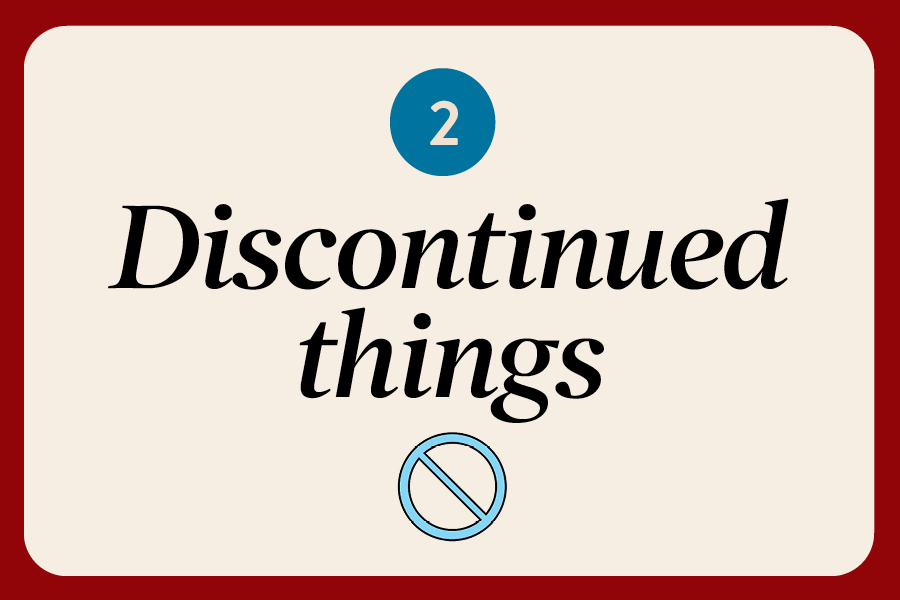As TikTok suddenly became inaccessible on the evening of Jan. 18 — shocking the country — ninth grader Lara Mohindra found herself repeatedly clicking on the app out of habit. Wanting to scroll, she received the same message every time she opened it: “Sorry, TikTok isn’t available right now. A law banning TikTok has been enacted in the U.S. Unfortunately, that means you can’t use TikTok for now.”
“I was just so used to being on it,” Lara said, “so not having that anymore was difficult, and I found myself on other apps like Instagram because I just had to find other ways to compensate for what happened to TikTok.”
TikTok is essential to students who have spent years curating a personalized For You Page reflective of their interests and hobbies, and thus have developed a special connection to the app. So, many users continue to engage with it, despite security concerns expressed by some government officials and the law forcing TikTok to migrate to an American parent company which caused January’s temporary ban.
Like most social media apps, TikTok collects a large volume of user data such as location, browsing habits and device information, raising concerns about how this data might be accessed or misused, according to William Akoto, an assistant professor of foreign policy and global security at American University.
“The main worry is that, under Chinese law, ByteDance could be compelled to share data with the Chinese government,” Dr. Akoto said in an interview with the Midway. “Compared to other social media apps, TikTok’s Chinese ownership creates unique geopolitical and legal concerns that are not as prominent with U.S.-based companies.”
Beyond concerns of data access, some lawmakers have supported forcing the app into American hands because they claim that user data is affecting what is shown to users, specifically related to political issues.
Junior Adnan Werdyani said he loves TikTok because of the perfect For You Page he has built since downloading the app in early 2020, encompassing what he and his friends find entertaining.
“I know about the Chinese influence, but I couldn’t care less,” Adnan said. “As long as I keep getting funny videos, I’m fine with it. I don’t care if my data is tracked. There’s nothing that interesting about me anyway.”
Savannah Woodson, a sophomore, said she uses TikTok because it keeps her informed about what is trending. She said although she is not concerned about its Chinese origins or her data being accessed, she would feel better if an American company took ownership.
“I mean, honestly, what is China gonna do with my data?” Savannah said. “At the end of the day, it would be a little comforting to know that the Americans have my data.”
Dr. Akoto said there is no public proof that TikTok has shared user data, but the risk looms.
“While public officials in the U.S. highlight this risk, there is as yet no public, definitive evidence that TikTok has handed over user data to the Chinese government,” Mr. Akoto said. “However, this does not mean that in future, the Chinese government could not compel TikTok to hand over user data.”
He said selling TikTok to a company in the United States could potentially mitigate some of the risks by placing the app under U.S. jurisdiction and potentially subjecting it to stricter regulatory oversight.
Dr. Akoto said, “However, even with a U.S. owner, issues related to data privacy, algorithm transparency and the inherent risks of extensive data collection would likely continue.”
Lara said TikTok goes deeper than entertainment. It is where she gets her news and connects with friends. She said as long as things remain the way they are, she plans to continue using TikTok.
“Right now, it’s almost like ignorance is bliss, in that everyone’s still using the app until something bad actually happens,” Lara said. “I feel like if I saw an example of information being taken obviously, that would change my thinking.”
Nevertheless, she said if the right evidence came to light, she would accept a TikTok ban.
“For me, I don’t want to jeopardize my safety or the information that I have on this application anymore, in any way,” Lara said. “So if the necessary precaution is banning the app, I think that the right steps should be taken.”
Dr. Akoto said users, especially younger ones, should be mindful of the personal information they share online.
“Understanding and using privacy settings, being cautious about permissions and staying informed about app policies are crucial steps,” Dr. Akoto said.






















































